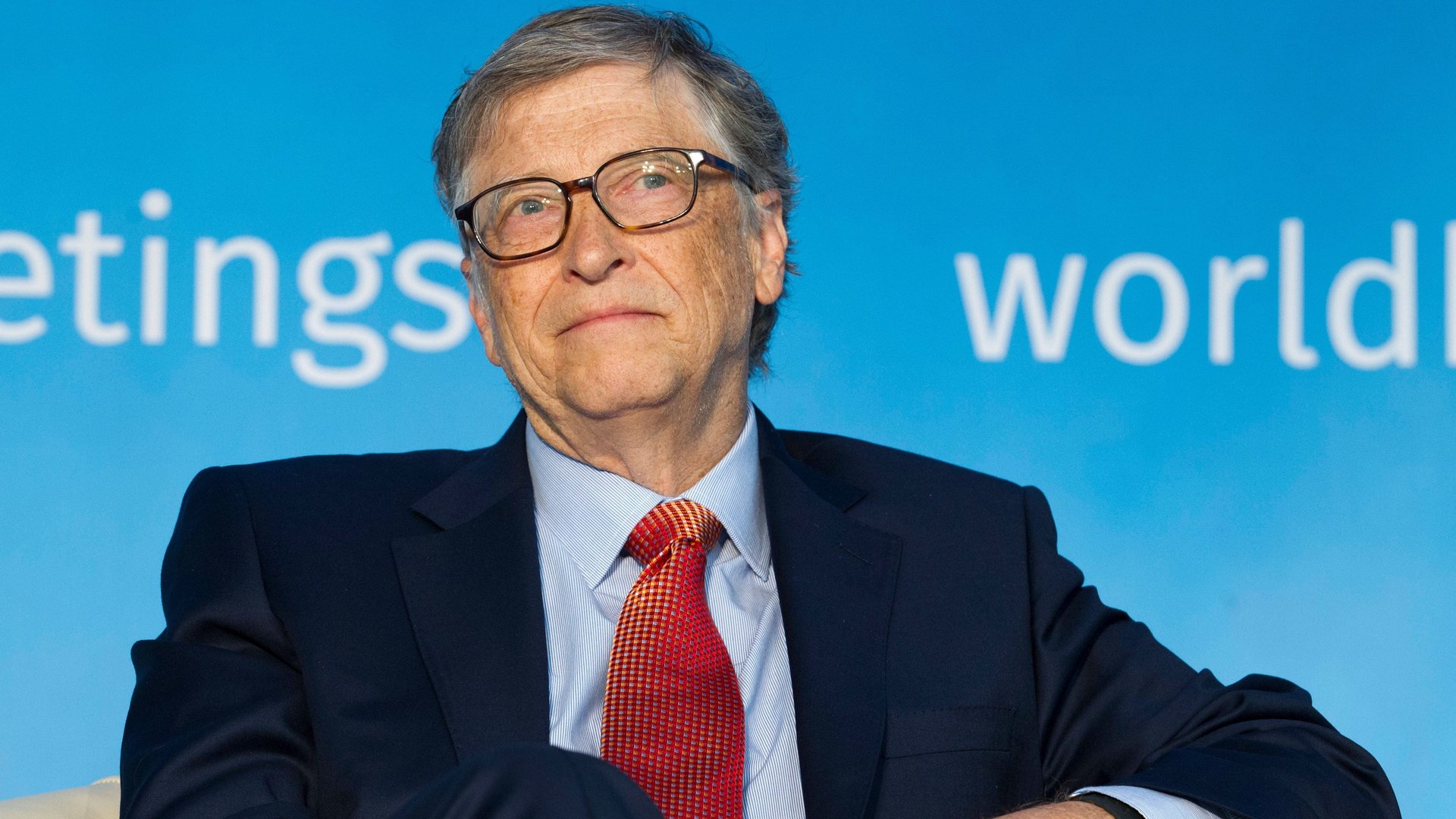Bill Gates revealed his strategy for getting Donald Trump excited about vaccines
Bill Gates is obsessed with vaccines.


Bill Gates is obsessed with vaccines.
His foundation has long fought to eradicate polio (victory is oh so close) and recently pledged $12 million to help develop a universal flu vaccine. In perhaps an even greater accomplishment, Gates also claims to have the world’s most powerful ear on public health: that of Donald Trump.
While a flu vaccine could both save millions of lives and enrich US drugmakers, the US president is a vaccine skeptic. Early in his administration, Trump promised to create a commission on vaccine safety to examine any potential links with autism, and suggested anti-vaccine crusader Robert Kennedy to head it.
This didn’t keep Gates, who met Trump last month in the Oval Office, from launching a charm offensive. According to his interview with STAT, the two managed to have “the longest conversation about universal flu vaccine that the president’s ever had.”
An “America first” approach to solving a global problem
Anticipating Trump’s “America First” outlook, Gates presented the vaccine in terms of US interest: “No matter what your framework is, even if it’s that human benefits outside the country count for zero, stopping pandemics is a smart thing,” Gates recounted explaining to the president. “Even in a totally nationalistic framework, you don’t want lots of Americans to die from flu or smallpox or some new pathogen.”
Flattery, then the universal flu vaccine
To get Trump on board, Gates also flattered him directly. He told STAT that he asked the US president, “Wouldn’t you love to have the universal flu vaccine be something that really got kicked off and energized by you?”
Trump was ”super interested,” says Gates, and called Food and Drug Administration (FDA)’s commissioner Scott Gottlieb on speakerphone during the meeting to learn more about the universal flu vaccine.
Gates notes that the strategy to win Trump over will require “a variety of voices that come back to him and say: Hey, you may have heard of this topic, here’s a plan that’s concrete and sort of fits within the resources we have,” he told STAT. “So the action item is very much on me or the community who care about these things to talk to federal officials, both defense and non-defense,” Gates added, hinting at Trump’s inclination to prioritize the advice of close aides and officials.
Sidestepping a job offer as White House science adviser
For well over a year, the US government has not had a science adviser to lead the Office of Science and Technology Policy—and was in fact left to deal with the most deadly recent flu outbreak under the ad-interim leadership of Michael Kratsios, the office’s young former deputy assistant. His rumored frontrunner for the post is moon-landing conspiracy theorist David Gelernter.
Gates brought up the scientific community’s concern with Trump, saying “I mentioned: ‘Hey, maybe we should have a science adviser.’”
Trump reportedly responded by inviting the tech magnate himself to be the next White House science adviser. Gates declined, saying that the post was “not a good use of my time.”
“I didn’t put him to the test, whether that was a serious thing or not,” he recalls. “He probably himself didn’t know if he was serious.”